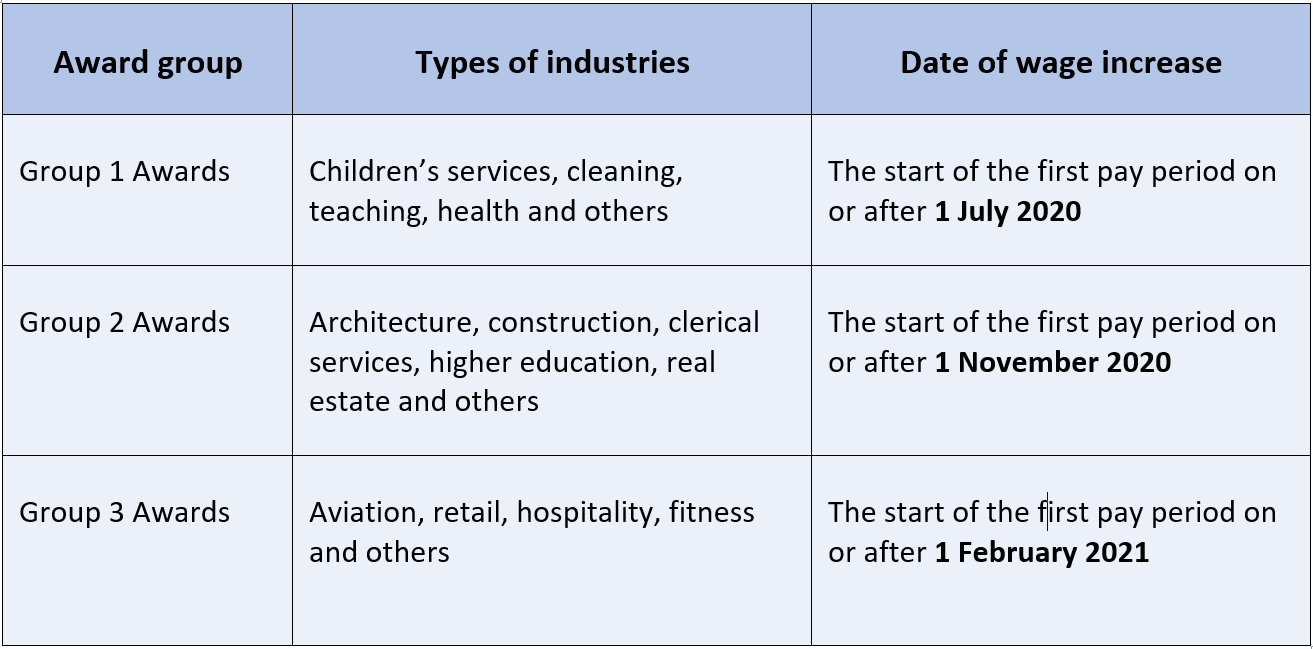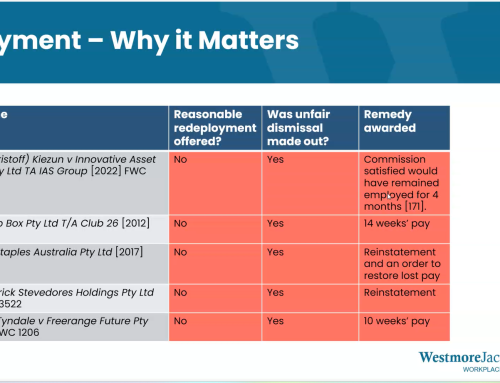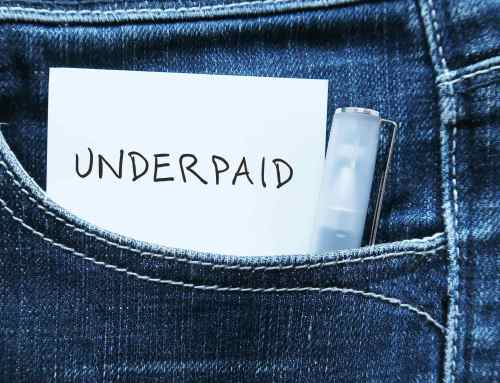
On 19 June 2020, the Annual Wage Review 2019-2020 decision was handed down by the Fair Work Commission. This decision followed the review of the national minimum wage (“NMW”) and modern award (“Award”) minimum wages for the next financial year.
This year’s review was unprecedented. The Commission highlighted the extraordinary shock of COVID-19 to the labour market.
While the Commission was not unanimous, the majority awarded a modest wage increase of 1.75% to both the NMW and Award minimum wages. For the first time, the majority also decided to introduce staggered wage increases for different groups of Awards.
As a result:
- the NMW will increase by 1.75% effective on 1 July 2020. From this date, the weekly NMW will be $753.80 for a 38 hour week, or $19.84 per hour; and
- Award minimum wages will also increase by 1.75%. This increase will come into effect progressively throughout the 2020-2021 financial year depending on which Award applies, starting from the least COVID-19 affected sectors of the economy on the first pay period commencing on or after 1 July 2020.
The decision to increase wages
Under the Fair Work Act 2009 (Cth), the Fair Work Commission (“Commission”) is required to assemble an Expert Panel of the Commission consisting of the President, three other full-time members and three part-time members. The Panel conducts a wage review from March to June each year. This year’s review coincided almost precisely with the introduction of the state of emergency laws across the various States of Australia due to COVID-19. Therefore, the Commission was able to take into account the potential effects of the lockdown measures on the economy.
Unsurprisingly, the recession and soaring unemployment rates were front of mind for the Commission. This led to an unprecedented decision aiming to support the recovery of businesses and the labour market.
Submissions to the Commission regarding the annual minimum wage review varied dramatically this year. Several employer organisations submitted that there should be no increase to the NMW or Award minimum wages. By contrast, the Australian Council of Trade Unions proposed an increase of 4%.
The Commission’s decision to award an increase of 1.75% to both the NMW and Award minimum wages was not unanimous. In a dissenting judgement, Professor Wooden recommended that Award minimum wages remain unchanged for the 2020-2021 financial year. He reasoned that no increase would prioritise growth in jobs and hours.
In reaching their decision, the majority found that “ Timing of wage increases An overview of the respective dates for Award minimum wage increases is explained below. The majority found that Awards in Group 1 cover industries that have been less affected by COVID-19. These industries represent “essential services” which have continued to operate throughout the pandemic. Conversely, Awards in Group 3 cover sectors that have been most affected by the pandemic, and therefore, justify the increase of minimum wages at a later date. This would allow those industries more time to recover from the economic shock. The majority acknowledged that some employers covered by Group 1 Awards would have been substantially affected by COVID-19, while there will be those in Group 3 that may have been impacted to a lesser extent. Overall, however, the majority were satisfied that the approach of staggering wage increases across three Award categories struck the appropriate balance. Tips for employers This year’s Annual Wage Review is another example of the unprecedented temporary changes being made across the industrial relations landscape in response to the economic impacts of COVID-19. In light of the above, employers should: Adam Colquhoun, Principal This article is general information only. It is not legal advice. If you need legal advice, please contact us.





